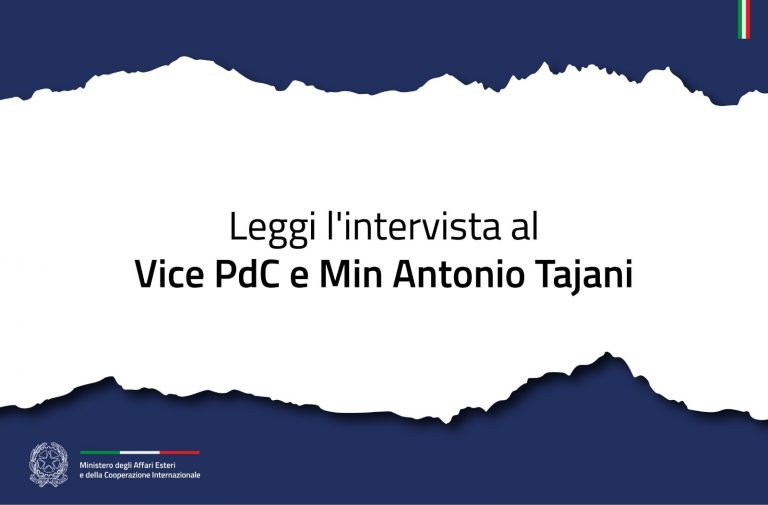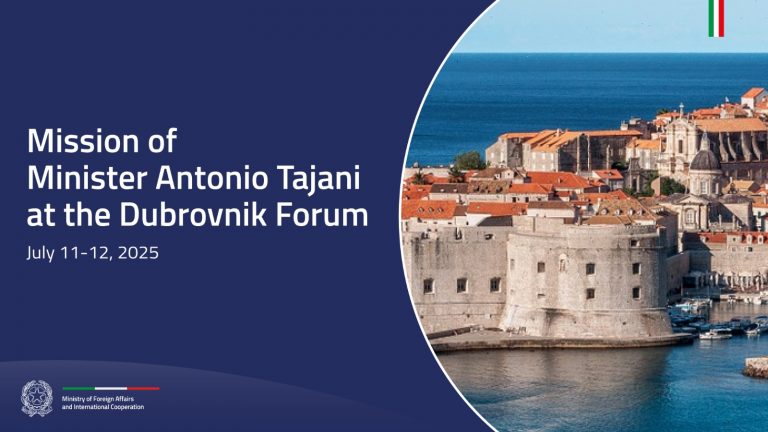The record arrivals in Lampedusa and the relentless flow of migrants in recent days are only the tip of the iceberg: according to Antonio Tajani, Italy’s Minister of Foreign Affairs, the situation may “even get worse” in the coming months. And Italy “as both the President of the European Parliament Metsola and the President of the European Commission von der Leyen have rightly said, must be helped at the European level. It cannot be left alone”.
While Salvini speaks of a “plan” and an “act of war” against Italy, the secretary of Forza Italia sends an even stronger message: “Unless we take the bull by the horns, there’s no way out. Not even Europe is enough to tackle such a massive issue, which concerns not only almost the whole of Africa but also the influx from the Balkan route. That is why we have involved the United Nations and the G20. We have worked on a major international conference to launch a full-scale stabilisation process in the Sahel”.
You knew, however, the situation you were facing: were you caught unprepared?
“No, we are doing everything humanly possible: the Ministries of Defence, Interior, and Foreign Affairs are working to address the emergency. However, the instability of the sub-Saharan region – which requires a great international mobilisation – is dramatic: the migration wave to the north of the continent, in particular to Tunisia, starts from that region and is pushed towards Italy and then, once here, to other countries. Yet the reception of irregular migrants is all on our shoulders. The costs are enormous”.
What is Italy doing to halt the exodus?
“I have just summoned to the Ministry the Ambassadors of Guinea and Côte d’Ivoire, countries from which hundreds of irregular migrants leave for Italy, and I called for a stricter criterion to stop the departures, to accept the repatriations, to prevent these hungry and desperate people from arriving in Tunisia and then setting sail for our shores. Also, I am in constant contact with my counterparts in Algeria and Tunisia, who assure cooperation, but even they cannot succeed without help. We will address the EU plan for Tunisia in New York: on Monday we European foreign ministers will meet. We will discuss how the European institutions must work together, united, to put together and implement the plan for Tunisia immediately”.
To make matters worse, France and Germany have closed their borders.
“They have a secondary immigration problem, we have a primary one, which requires immediate aid and reception. The migrants themselves do not want to stay here but wish to go to Germany, sometimes to France, or to Finland. We act in two directions: we stand firm, we do everything to stop the smugglers, we seize their boats and, if possible, we repatriate the illegal immigrants. Then, we are also increasing quotas to receive legal immigrants, who are different from illegal immigrants. In terms of reception, we try to distribute the migrants fairly, so that the population can absorb the impact. But I repeat, the problem lies upstream. Unless a real plan for Africa is implemented, there is no way out”.
Do you feel secured in Europe? Yesterday the ECB essentially rejected the rule on banks’ extra-profits: FI had contested it, what happens now?
“We have always been in favour of receiving help from the banks at this difficult time, the spirit of the rule is right. We had suggested technical adjustments so as not to run the risk of scaring the markets or damaging small credit institutions, particularly local ones, and to make it a one-off. I therefore appreciate that Prime Minister Meloni has opened up to corrective measures”.
Mario Draghi has been appointed to work in Europe on the issue of competitiveness: is this good news?
“Yes, absolutely. We have been in government with him, he was an excellent president of the ECB, he is one of the most prominent Italians in the world, a resource of the Republic. The fact that he has been chosen to work on competitiveness, a very important area for us, is positive. He is the right man in the right place”.
What about Commissioner Gentiloni? Was everything sorted out?
“Asking for something or criticising something should not be seen as an offence. We are willing to dialogue and cooperate, but if there is a point to be made, we make it”.







